Related Research Articles
Methodism, also called the Methodist movement, is a group of historically related denominations of Protestant Christianity whose origins, doctrine and practice derive from the life and teachings of John Wesley. George Whitefield and John's brother Charles Wesley were also significant early leaders in the movement. They were named Methodists for "the methodical way in which they carried out their Christian faith". Methodism originated as a revival movement within Anglicanism originating out of the Church of England in the 18th century and became a separate denomination after Wesley's death. The movement spread throughout the British Empire, the United States and beyond because of vigorous missionary work, and today has about 80 million adherents worldwide.
Pentecostalism or classical Pentecostalism is a Protestant Charismatic Christian movement that emphasizes direct personal experience of God through baptism with the Holy Spirit. The term Pentecostal is derived from Pentecost, an event that commemorates the descent of the Holy Spirit upon the Apostles and other followers of Jesus Christ while they were in Jerusalem celebrating the Feast of Weeks, as described in the Acts of the Apostles.
The Apostolic Faith Church of Portland, Oregon, also known as the Apostolic Faith Mission of Portland, Oregon, is an international Holiness Pentecostal denomination of Christianity, with nationwide reach and headquartered in Portland, Oregon, United States. It was founded in 1907 by Florence L. Crawford, who was affiliated with William J. Seymour and the Azusa Street Revival of Los Angeles, California. By 1908 Crawford had independently founded what would become the Apostolic Faith Church. Since July 2000, the Superintendent General of the Apostolic Faith Church has been Darrel Lee.
The Holiness movement is a Christian movement that emerged chiefly within 19th-century Methodism, and to a lesser extent influenced other traditions such as Quakerism, Anabaptism, and Restorationism. The movement is historically distinguished by its emphasis on the doctrine of a second work of grace, generally called entire sanctification or Christian perfection and by the belief that the Christian life should be free of sin. For the Holiness movement, "the term 'perfection' signifies completeness of Christian character; its freedom from all sin, and possession of all the graces of the Spirit, complete in kind." A number of evangelical Christian denominations, parachurch organizations, and movements emphasize those beliefs as central doctrine.
The Azusa Street Revival was a historic series of revival meetings that took place in Los Angeles, California. It was led by William J. Seymour, an African-American preacher. The revival began on April 9, 1906, and continued until roughly 1915.

William Joseph Seymour was an African-American holiness preacher who initiated the Azusa Street Revival, an influential event in the rise of the Pentecostal and Charismatic movements. He was the second of eight children born to emancipated slaves and raised Catholic in extreme poverty in Louisiana.

Charles Fox Parham was an American preacher and evangelist. Together with William J. Seymour, Parham was one of the two central figures in the development and early spread of American Pentecostalism. It was Parham who associated glossolalia with the baptism in the Holy Spirit, a theological connection crucial to the emergence of Pentecostalism as a distinct movement. Parham was the first preacher to articulate Pentecostalism's distinctive doctrine of evidential tongues, and to expand the movement.
Asa Alonso Allen, better known as A. A. Allen, was an American Pentecostal evangelist known for his faith healing and deliverance ministry. He was, for a time, associated with the "Voice of Healing" movement founded by Gordon Lindsay. Allen died of alcoholism and liver failure in a coma at the age of 59 in San Francisco, California, and was buried at his ministry headquarters in Miracle Valley, Arizona.
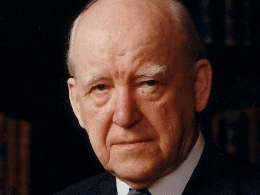
David Martyn Lloyd-Jones was a Welsh Congregationalist minister and medical doctor who was influential in the Calvinist wing of the British evangelical movement in the 20th century. For almost 30 years, he was the minister of Westminster Chapel in London.
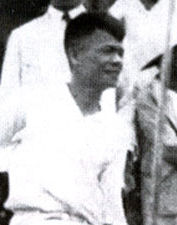
John Sung Shang Chieh also John Sung, was a renowned Chinese Christian evangelist who played an instrumental role in the revival movement among the Chinese in Mainland China, Taiwan, and Southeast Asia during the 1920s and 1930s.
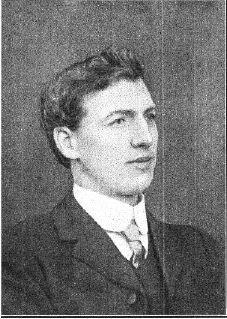
Evan John Roberts was a Welsh evangelist and leading figure of the 1904–1905 Welsh revival.

Wallie Amos Criswell, was an American pastor, author, and a two-term elected president of the Southern Baptist Convention from 1968 to 1970. As senior pastor of the First Baptist Church of Dallas for five decades he became widely known for expository biblical preaching at a popular level, and is regarded as a key figure in the late 1970s "Conservative Resurgence" within the Southern Baptist Convention.

The Manchurian revival of 1908 was a Protestant revival that occurred in churches and mission stations in Manchuria.
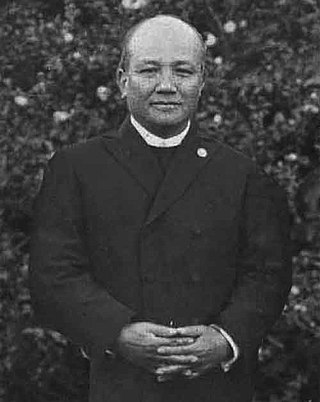
Juji Nakada was a Japanese holiness evangelist, known as "the Dwight Moody of Japan", who was the first bishop of the Japan Holiness Church and one of the co-founders of the Oriental Missionary Society.
Angus MacDonald (1844–1900) was a Scottish Roman Catholic priest, who later served as the first Bishop of Argyll and the Isles from 1878 to 1892 and as the third Archbishop of St. Andrews and Edinburgh from 1892 to 1900.
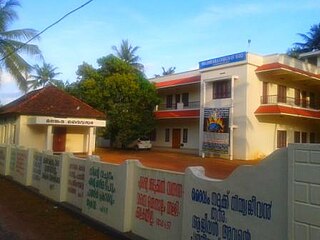
Malankara Church of God Thrikkannamangal is a church in Kottarakkara, Kerala, India, originally known as Malankara Poorna Suvisesha Sabha.

Herbert Lockyer (1886–1984) was a minister and best-selling author of over 50 books, including the 21-volume "All" series. He was educated at Glasgow Bible Institute, afterwards receiving honorary degrees at Northwestern Evangelical Seminary, and the International Academy in London. He was most influential, however, after crossing the Atlantic to preach and write in the United States.

The Swedish Pentecostal Movement is a Pentecostal movement in Sweden. Many, but not all, of these, are members of the Pentecostal Alliance of Independent Churches, which was founded in 2001. The Pentecostal movement spread to Sweden by 1907 from the 1904–1905 Welsh Revival and the Azusa Street Revival in Los Angeles in 1906.

Scottish Protestant missions are organised programmes of outreach and conversion undertaken by Protestant denominations within Scotland, or by Scottish people. Long after the triumph of the Church of Scotland in the Lowlands, Highlanders and Islanders clung to a form of Christianity infused with animistic folk beliefs and practices. From 1708 the Society in Scotland for Propagating Christian Knowledge (SSPCK) began working in the area. In 1797 James Haldane founded the non-denominational Society for the Propagation of the Gospel at Home. Dozens of lay preachers, divinity students and English preachers were sent to the region. In the early nineteenth century a variety of organisations were formed to support evangelism to the region.

Martin Wells Knapp (1853–1901) was an American Methodist minister who founded several institutions including the magazine God’s Revivalist in 1888, the International Holiness Union and Prayer League in 1897, and God's Bible School, later known as God's Bible School and College, in Cincinnati, Ohio in 1900. He was a central figure of the more radical wing of the Holiness movement.
References
- Most of this article is based on the biography by A. Woolsey.